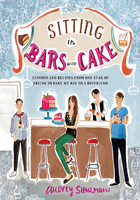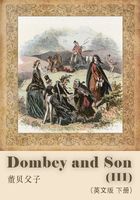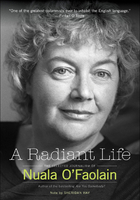WHEN WE RETURNED FROM Mexico, my mother, sister, and I moved into the one-room schoolhouse on West Hill. Our father was living in Virginia, near his parents, and we would see him only sporadically for the next few years. My grandfather had purchased the schoolhouse property from a friend, a Mr. Tyler, who had never returned to it after buying it as a romantic notion for his wife, who had proclaimed it to include the prettiest spot in all of Vermont. It sat on the twenty acres that bordered West Hill Brook on one side and a gravel road on the other. We could walk or run through the woods on a path that had been made by schoolchildren a century before us to the covered bridge that sat over a clear, deep pool at the bottom of a steep waterfall. It was surrounded by rock ledges that were perfect for jumping from. In the summer the schoolhouse and the land around it were a paradise, but in the winter it was all we could do to stay warm and fed.
The house had come with a resident tomcat that we loved instantly. His name was Teddy, and he was such a wet-black color that even when you were very close to him, it was difficult to make out the shape of his chin or where his legs began. Usually it was just his eyes that you could see, and they were used to convey little else than a mixture of wisdom and intense annoyance. He had already been inhabiting the schoolhouse when we moved into it, so no one knew for sure how old he was. Now, when I think of him living with us—a young, beautiful, broke single mother and two little girls on top of a cold mountain—and dropping plump mice, still warm and shaggy in their winter coats, on our pillows in the early morning, I believe it was because he knew far better than we did how close we three toed the line of survival.
Teddy's strategy for getting through a Vermont winter was similar to our mother's: sleep through as much of it as possible. In the coldest months he would curl up for hours and hours under the potbelly woodstove that was our main source of heat, sometimes for so long that his whiskers would begin to twist up at the tips and his thick black fur crackled when you touched it. My sister and I would dry off in front of the stove after our bedtime baths while he watched us suspiciously from underneath, peering out between the chrome claw feet. We would wait until his eyes had closed, yank him out by his thick tail, and run as fast as we could, clutching him in our arms, trying to get him into our bed while he was still hot. Then we would stuff him under the covers and scramble around, holding the blankets down in every direction. The point was not to convince him to stay; it was just to keep him under there long enough to warm things up. He would eventually tear his way free, throwing disgusted glances over his shoulder as he marched back to his stove. We would wake up hours later, with the stove gone out and the house filled with that dusty, cold blue morning light, to find him stretched out with stiff legs against our backs, pushing us slowly off our mattress, stealing back his heat.
My mother's bed was very close to the stove and also to the door that led to the small addition that had been built onto the back of the house where my sister and I slept. My mother had put up wallpaper in our room that had pictures of animals—lambs and kid goats and bunnies—dancing together in a flowery meadow. In the beginning she had matched up the design perfectly, but then as she worked toward the other end of the wall, she must have decided that it wasn't worth the effort because she stopped trying. My bed was against a wall where the images on the wallpaper didn't match up perfectly, and I would lie on my side and run my fingers over the edges of the paper where they overlapped, trying to push the halves of the images together in my mind. We slept under heavy Mexican blankets and wore thick, footed pajamas but would still wake up, uncomfortable from the cold, and need to crawl into each other's beds. When I crept into my sister's bed, she would let me sleep next to the wall, where I could press my fingers against the same images where they matched up exactly, and next to her warmth the cold muscles in my legs and arms would warm and relax, and I would fall asleep. If I looked through the doorway as I walked from one bed to the other, I could see Teddy tucked into the folds of the Mexican blankets on my mother's bed, where he had been since his stove had gone out.
My mother was very good at starting fires and at keeping them going. When she brought an armload of firewood into the house and dropped it onto the wood floor next to the stove, there would be three or four medium-size logs and one or maybe two very large ones. Those were the ones that would keep burning—with luck, and if the dampers were set properly—through the night, and theirs would be the embers that would make a crackling morning fire quick work. We had no woodshed, so the logs would be coated with snow and chunks of ice and would need to be set on their ends leaning against the chrome skirt around the base of the stove to dry. If the stove went out in the middle of the night, we would wake up cold, and we could find our mother in her flannel nightgown, her bare hands reaching through the door of the stove, a box of strike-anywhere matches on the floor next to her. We would climb into her bed and pull her blankets over us and watch her work, and sometimes Teddy would watch with us. She sometimes had her boots on, under her nightgown, which meant that she either had had to go out for more wood or felt that it might be necessary to give the stove a swift kick.
There were two mountains visible from a high spot on our road. They were across the valley, round and smooth like most of the Green Mountains, which are older and more weatherworn than the tall and spiny mountains in the west. One of the ridgelines, the larger and higher of the two, makes a slow S-curve before dropping into the valley. The other is a soft lump tucked into one of these curves, so close in one place that the valley between them rises a bit. Almost every time we drove past the spot where they became visible for a moment, we would point and shout out that those mountains looked just like my mother and Teddy asleep together, under thick blankets. When there was snow on the mountains, they looked especially peaceful, as though they would be asleep for months, the top of my mother's head barely visible beneath stiff, white wool blankets.
I have a photograph on my wall now, a tiny black-and-white picture of our schoolhouse. The house itself is barely visible; just the peaked roofline and the top of our door can be seen past a massive pile of firewood. It was delivered this way, dumped from the back of a truck right in front of our door, not stacked. That would have cost us extra. The wood in the photo is covered in a fresh foot of snow. It is, to my eye, a photograph of a family who was caught unprepared for winter. They did not get their wood delivered on time or had not stacked it up and protected it with a tarp against the house, under the eaves. They must have spent more than one miserable day pulling apart a frozen pile of wood with wool mittens, though I don't remember that. My mother likely did that alone while my sister and I were inside, watching whatever was on the one channel we got on our tiny black-and-white television or, more likely, harassing Teddy. I see this photo and I remember the way that some of the people in town looked at my mother, as though she must be crazy to be living the way she was, with two little girls on a mountain road in an uninsulated house with no electric heat. I see this photo, taken from our road and from the perspective our neighbors must have had as they drove past our house, and I imagine them shaking their heads in judgment as they went by.
Some winters our wood would arrive unsplit. It would appear as short logs, trees cut into lengths that would fit into our stove, and my mother would borrow or rent a wood splitter to cut it into sections. When the wood splitter was in the yard, my sister and I were not allowed to go outside. It was a noisy thing, louder than a mower or a car, and spit out a smelly, oily smoke that would cling to my mother's hair for days afterward. She was unimaginably strong, my mother. Tall and very thin, with long, thick red hair that was always down, and always loose. She was very beautiful. By my math she was thirty-three, maybe thirty-four, when the photo of the woodpile under the snow was taken.
On these fall mornings she dressed in the ragg-wool sweaters and thermal undershirts that my grandmother bought her every year for Christmas, with jeans. She had a thick wool fisherman's hat that she would pull over her head, pushing her hair over her ears underneath it to keep it out of her way. She would make herself coffee in a percolator, dumping the dried coffee grounds from the morning before into the stove before making a fresh pot. They would make the fire very hot for just a moment, a bright orange glow would rise up, and we would say that the stove and our mother loved coffee in the morning equally.
When she was running the splitter, lifting logs that must have weighed fifty pounds onto its belt and pushing them into a sharp, rotating saw blade, she would get very hot and take off her sweater and then her hat, and then even her gloves, and then we would see her through the window, sleeves pushed past her elbows, lifting and pushing, her breath like clouds, until the engine would cut out because she was tired or because she had run out of fuel, and then she would sit on an unsplit log and have a cigarette, and stretch her back like a cat, and then the other way, so that she would be looking up at the gray sky, with smoke coming out of her mouth and her eyes closed. Then she would come inside and make us dinner, usually spaghetti, and we would all crawl into her bed together and watch television. Teddy would come out from under the stove, walk over us with heavy, quick steps, and curl up next to her head, and she would scratch him under the chin and pet him, and he would raise his chin and close his eyes, and he would purr. She had boyfriends in those days, but they were mostly not around when we were awake, and they were never there to help her with things like firewood, though they might have been if she had asked. The only man in her life, as far as we could see, who paid attention to whether the house was warm enough, was Teddy.
I had forgotten, until recently, what depending on wood heat means. When Hurricane Sandy inched toward my city, I got an e-mail from my mother, who still lives in Vermont. She has a little house in town now and doesn't live in the schoolhouse anymore. She even has oil heat, because after decades of depending on wood heat for survival, after years of battling old woodstoves and undependable weather patterns and inhaling dust and smoke, she decided that she had dedicated enough hours of her life to trying to stay warm and put down her ax for good. She also has cable television, which has replaced the potbelly woodstove as the thing that she moves her chair toward and that makes her angry and that sometimes gets a swift kick in its side. She watched closely the morning of October 28, 2012, and could see that storm coming and went upstairs to her computer and typed out the following message to me: "That Sandy looks mean. Get the fuck out of there. Come here if you want."
We were already leaving the city when I got her message. I had packed a week's worth of food and water, our warmest clothing and boots, our battery-powered radio and lanterns, shelf-stabilized milk, my one-year-old daughter, my dog, and my husband into our car, a four-thousand-pound, twenty-year-old Land Cruiser, and was checking traffic patterns. There were moments, over the course of that morning, when I felt supremely, almost irrationally, confident, even as I watched people on the streets below through my bedroom window, carrying on with their day as though there was no reason to flee or even carry a raincoat. It was sunny and bright, and according to the radio there was no traffic on the FDR, even though an evacuation of Lower Manhattan had been called during a much less severe storm the year prior. But there were also moments when I wondered if I was overreacting. I remembered a dinner party, about a year after I had moved to New York City. We were with some friends of my husband's from business school, most of whom had grown up in or near the city. I had embarrassed myself by launching into a speech—after two drinks on an empty stomach—about how important it was for each of us to have an escape plan were there ever to be a catastrophe, natural or otherwise, stressing that the evacuation routes from the city were not adequate. This would have been a perfectly normal thing to say in my former social circles, in northern California and rural Vermont, where paranoia and a distrust of public services in the face of natural disasters were standard. But here it was followed by a still silence, a circle of faces with raised brows and wry smiles. Tricia Spielman reached across the table and put her hand on top of mine. "Don't worry, Heather, we keep a car uptown." And then she raised her other hand to her ear with her pinky and index fingers extended, to indicate a phone, and tilted her head, saying, "If anything happens, just call me. We'll come get you."
We drove two hours to our house in the Catskills, where we also expected to lose power but knew, or hoped, that we would be able to stay warm with wood fires, something I had not done for a decade, and even then it hadn't been in a deadly cold.
We lost power the following evening, even earlier than expected. We watched two trees, each sixty or seventy feet tall, land on our power lines, causing them to snap in half. TC and I pulled Bee's crib into our bedroom, where we sat awake as she slept, with the dog between us, listening to massive pines and firs hitting the ground as the winds touched down. We heard the cable that connected us to the grid snap away from the house and watched it fly toward its other end, still connected to a now-downed pole, which hung eerily over our driveway. We made wood fires in our smoky fireplaces and stuffed cracks in windows and doors, but our house was too big to heat with just fireplaces. Plus, the ultra-sensitive smoke alarms wouldn't stop going off, waking us and Bee every hour and giving us constant headaches. Our house was failing us and clearly needed power to operate. We made the decision to move to a smaller house nearby, owned by close friends. They were in New Jersey, also without power, but were able to get us a message telling us that it was what they wanted us to do, knowing that we would be able to keep it warm with its one central woodstove. We packed everything we could and moved on foot—our car was trapped by fallen trees—through the stormy woods and set up home for the next five days in their efficient little house.
TC has never depended on wood heat the way I have. He can start a fire and keep it going, but he lacks the inner anxiety alarm that reminds him to maintain it. I had never been dependent on wood heat as a mother before, and I realized quickly that it creates a whole new set of alarms, anxiety, and fear. Bee was dressed in her warmest clothing. We didn't have running water to bathe her, but I could fill a bucket in the stream or lake and warm it on the gas stove. I fed her and TC and the dog bacon and bread with butter, what TC began to refer to as my "anxious Eskimo diet." I made sure we were all drinking enough water, and I watched the stove without blinking. What I could not manage to do was build a fire that would keep burning through the entire night, so I slept with an eye open, and got up in the dark in the wee hours, and rebuilt it. My baby and husband kept sleeping. It would stay warm upstairs long after the fire had gone out below, but my dog would join me in the cold, sitting next to me as I bent over in front of the stove as it lit up and filled the room with a warm, faded light.
I could not go back to sleep, so the dog and I would make coffee with a percolator, dumping the grounds from the previous morning into the woodstove, which would swallow them with a hot belch, and sit together and make a plan to get through the day, silently calculating the amount of water, of milk for the baby, of firewood, that we would need. Eventually, my family would wake up and join us, and while we were happy to be safe and warm together, I was getting tired. The fact that my mother had done this, with two tiny children and a tomcat instead of a husband, for four years, seemed impossible. In the months after Sandy, I became preoccupied with discovering a way to heat my house with something other than wood. A friend's husband, intrigued by my efforts, got involved. By Christmas, I had a plan.
To make a coffee log fire starter, preheat oven to 260°F (120°C). Spread 2? cups (570 g) spent coffee grounds (donated by a local coffee shop) in a large baking dish, and place on the lower rack of the oven. Place ? cup (180 ml) molasses and 1 ? cups (280 g) wax pieces (break up 3–4 emergency candles or a block of craft wax) in a 9" × 5" (23 × 12 cm) loaf pan, and place in the oven next to the coffee grounds. Cook for 20 minutes, or until grounds are completely dry. Remove both pans from the oven and add the grounds to the melted wax and molasses mixture ? cup (115 g) at a time, until all of the grounds are shiny and dark with wax and molasses; if the grounds sizzle as you add them, they are still damp and need to dry out a bit longer. To flatten the mixture, lay a piece of foil or plastic wrap across the top and press on the surface with your hands until it's compacted and flat in the loaf pan. Allow to cool and harden for a few hours (or less if you put it outside in the cold). Pry the "log" loose with a butter knife and remove from pan. If desired, wrap the log in paper, which looks pretty and will help you to light it later. For a lovely gift, wrap a few logs in paper and tie them together with a flammable paper ribbon.















